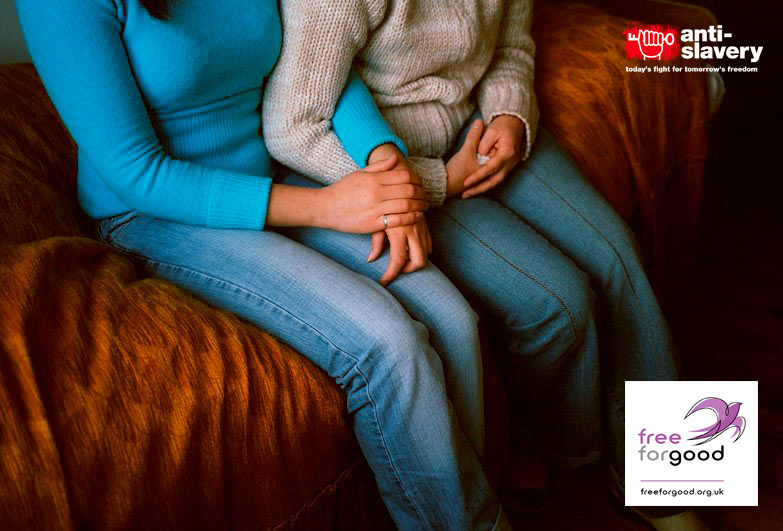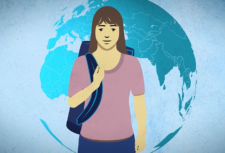Disclaimer: This article is more than 6 years old, and may not include the most up-to-date information or statistics. Please verify information with more recent sources as needed, and if you have any questions contact our Press Office.
Anna Sereni on a new Modern Slavery Victim Support Bill that would afford protections to some of the most vulnerable people in the UK.

26 January 2018
The British Government estimates that over 13,000 people, including children, in the UK are victims of modern slavery. The 2015 Modern Slavery Act is championed as an historic piece of legislation in progressing the UK’s fight against modern slavery.
The focus on prosecution remains central to the Act. Catching the traffickers, simplifying slavery offences to make prosecuting easier, increasing sentencing and introducing trafficking prevention orders all remain vital in our attempts to bring about the most effective response to slavery.
However, when it comes to protecting the victims and the prevention of slavery, the Act remains weak.
Currently, once victims escape slavery they encounter a number of additional challenges.
The Act doesn’t legally guarantee the kind of support the victims receive. The result is that the care victims receive is inconsistent. They might be lucky to find a good safe house with professional care, but others remain in a substandard accommodation that is not suitable for vulnerable, traumatised people.
Currently the victims are guaranteed to receive support only for 45 days during so-called ‘reflection period’, whilst their case is being assessed by the authorities to determine whether they indeed have been a victim (the government announced that it will be lengthened to 90 days, but it’s unknown when it will be implemented).
After the initial period of 45 days, even if they receive a decision identifying them as a slavery victim, the specialised support ends, and the extra struggle for the victims begins. They have to find other accommodation and means to survive.
Some simply become homeless, making them vulnerable to traffickers again who at least can offer them a roof over their heads.
Those from abroad try to regulate their immigration status, many apply for asylum out of fear of going back to their own countries and facing the people and authorities complicit in their exploitation, as well as stigma, shame and even honour killing.
Unregulated immigration status is a big problem, as it stops people from finding a job or receiving benefits; and instead leaves them with long legal battles and constant uncertainty on the top of dealing with their still fresh traumas. Our partners from the Snowdrop Project describe it well in a recent blog.
Not only are victims likely to become more vulnerable but the chances of prosecuting perpetrators considerably reduces. Criminal cases against traffickers often rely on testimonies from the victims, but who would want to work with authorities that can’t guarantee basic living needs, let alone make them feel safe from their traffickers?

Help protect slavery victims
Sign our petition to protect, not neglect victims of slavery in the UK.
Free for Good
A new Modern Slavery (Victim Support) Bill proposed by Lord McColl of Dulwich aims to increase victim protections, something that is also likely to improve conviction rates of traffickers.
Firstly, it provides a guarantee for support for 12 months after a person receives a positive decision identifying them as victim. This extends the minimum 45 days of support to 410 days, giving people time to start rebuilding their lives.
Secondly, the Bill specifies the minimum standards of support for victims, from appropriate accommodation and financial assistance, to access to social, medical, psychological and legal care.
Third, it would grant the victims leave to remain in the UK for the period of recovery should they wish, which allows victims the time to create some normality in their new lives in freedom.
Fourth, it puts these standards of support into law. This is important; it means that any future government policy reducing victim support is less likely.
Additionally, Lord McColl’s Bill transposes victim support from international law into domestic legislation. Post-Brexit, this will be crucial, as it would future-proof the rights of modern slavery victims to support and remove the risk of these rights being unilaterally repealed by Ministers without reference to Parliament.
The Victim Support Bill is needed to empower the voice of the voiceless. This is why Anti-Slavery International together with all of the partners from the Anti-Trafficking Monitoring Group coalition are adding their voice to the Free for Good campaign backing the Bill.
What Can You Do?
Please sign our petition to protect, not neglect, victims of slavery in the UK. We need the UK Government to support this Bill to become law, so that victims can be free for good.

Help protect victims of slavery
Please sign our petition to protect, not neglect victims of slavery in the UK.
Anna Sereni is the Co-ordinator of the Anti-Trafficking Monitoring Group, a coalition of organisations, which Anti-Slavery hosts, monitoring the UK Government’s implementation of anti-slavery legislation and policies. You can follow her on Twitter at @sereni_anna.





